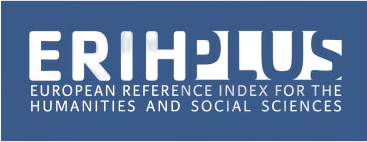The functions of justices in relation to the evidence in the General Organic Code of Processes in Ecuador
Las funciones del juzgador en relación con las pruebas en el Código Orgánico General del Ecuador
##plugins.themes.bootstrap3.article.main##
The 2008 Ecuadorian Constitution marks a remarkable transformation of the legal/procedural practice. As part of this change in 2015, the COGEP (Organic Code of General Processes) was put into effect, resulting from a long political-legal process of transition towards harmony between legal practice and constitutional statements.
This code extended the trial hearings to cover all processes that were previously dispersed in different legal provisions about specific themes. It legally concentrated all the processes except for the constitutional, electoral and criminal proceedings.
In the evidence field, the assessed evidence model was abandoned in favor of the judicial conviction model. In this case, the evidence evaluation process follows the broad criteria of utility, coherence and viability to formulate a conclusive judicial decision. This decision is made at first through oral resolution, and a few days later with ratified arguments. In this context, the judge is much closer to the material truth of the facts, and is able to execute a more effective search making an informed decision on the roles of the parties, including the possibility of requesting further evidence to better resolve the case according to article 168 of the COGEP.
Downloads
##plugins.themes.bootstrap3.article.details##
I. Abel Lluch, Xavier. (2014). La valoración de la prueba en el proceso civil. La Ley, Madrid.
II. CCE. (2009). Corte Constitucional de la República del Ecuador. Sentencia No. 002-09-SAN-CC. 005-08-AN, de 2 de abril.
III. Devis Echandía, Hernando. (2009). Nociones Generales de Derecho Procesal Civil, segunda edición. Temis S.A, Bogotá.
IV. Ferrer Beltrán, Jordi. (2005). Prueba y Verdad en el Derecho. Marcial Pons, Madrid.
V. Ferrer Beltrán, Jordi. (2007). La valoración racional de la prueba. Marcial Pons, Madrid.
VI. Gascón Abellán, Marina. (2004). Los hechos en el derecho. Marcial Pons, Madrid.
VII. Ibañez, Perfecto Andrés. (1996). Corrupción y Estado de Derecho. Trotta, Madrid.
VIII. Marx, Karl y F. Engels. (1971). Manifiesto comunista, Instituto Cubano del Libro, La Habana.
IX. Prieto-Sanchís, Luis. (2012). Supremacía, Rigidez y Garantía de la Constitución. En: Control Constitucional y Activismo Judicial. Ara Editores, Lima.
X. Taruffo, Michele. (2005). La prueba de los hechos. Trotta, Madrid.
XI. Torré, Abelardo. (2003). Introducción al Derecho. Lexis Nexis, Buenos Aires.
XII. Zavaleta Rodríguez, Roger. (2014). La motivación de las resoluciones judiciales como argumentación jurídica. Grijley, Lima.
REFERENCIAS JURISPRUDENCIALES
XIII. Constitución de la República del Ecuador, 2008.
XIV. Código Orgánico General de Procesos. Registro Oficial de 22 de mayo de 2015.
XV. Ley Orgánica de Garantías Jurisdiccionales y Control Constitucional. Registro Oficial de 22 de octubre de 2009.
XVI. Código Orgánico de la Función Judicial. Registro Oficial de 9 de marzo de 2009.
XVII. Codificación del Código de Procedimiento Civil. Registro Oficial de 12 de julio de 2005.
XVIII. Código Tributario. Codificación 2005. Registro Oficial de 14 de junio de 2005.
XIX. Convención Americana sobre Derechos Humanos (Pacto de San José), 1969.
XX. Declaración Universal de los Derechos Humanos,















